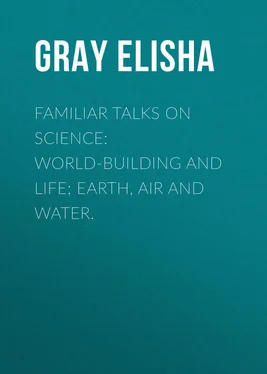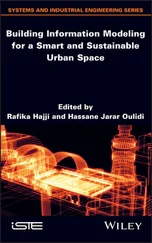Elisha Gray - Familiar Talks on Science - World-Building and Life; Earth, Air and Water.
Здесь есть возможность читать онлайн «Elisha Gray - Familiar Talks on Science - World-Building and Life; Earth, Air and Water.» — ознакомительный отрывок электронной книги совершенно бесплатно, а после прочтения отрывка купить полную версию. В некоторых случаях можно слушать аудио, скачать через торрент в формате fb2 и присутствует краткое содержание. Жанр: foreign_home, foreign_antique, foreign_prose, на английском языке. Описание произведения, (предисловие) а так же отзывы посетителей доступны на портале библиотеки ЛибКат.
- Название:Familiar Talks on Science: World-Building and Life; Earth, Air and Water.
- Автор:
- Жанр:
- Год:неизвестен
- ISBN:нет данных
- Рейтинг книги:5 / 5. Голосов: 1
-
Избранное:Добавить в избранное
- Отзывы:
-
Ваша оценка:
- 100
- 1
- 2
- 3
- 4
- 5
Familiar Talks on Science: World-Building and Life; Earth, Air and Water.: краткое содержание, описание и аннотация
Предлагаем к чтению аннотацию, описание, краткое содержание или предисловие (зависит от того, что написал сам автор книги «Familiar Talks on Science: World-Building and Life; Earth, Air and Water.»). Если вы не нашли необходимую информацию о книге — напишите в комментариях, мы постараемся отыскать её.
Familiar Talks on Science: World-Building and Life; Earth, Air and Water. — читать онлайн ознакомительный отрывок
Ниже представлен текст книги, разбитый по страницам. Система сохранения места последней прочитанной страницы, позволяет с удобством читать онлайн бесплатно книгу «Familiar Talks on Science: World-Building and Life; Earth, Air and Water.», без необходимости каждый раз заново искать на чём Вы остановились. Поставьте закладку, и сможете в любой момент перейти на страницу, на которой закончили чтение.
Интервал:
Закладка:
Elisha Gray
Familiar Talks on Science: World-Building and Life; Earth, Air and Water
INTRODUCTION
Dear Reader: Please look through this "Introduction" before beginning with the regular chapters. It is always well to know the object, aim, and mode of treatment of a book before reading it, so as to be able to look at it from the author's view-point.
First: A word about the title – "Nature's Miracles." Some may claim that it is unscientific to speak of the operations of nature as "miracles." But the point of the title lies in the paradox of finding so many wonderful things – as wonderful as any miracle that was ever recorded – subservient to the rule of law.
"But," you say, "a miracle does not come under any rule of law."
Ah! are you sure of that? It is true that we may not understand the law that the so-called miracle comes under, but the Author of all natural law does. We do not pretend to dispute but that the Power that made nature's laws can change them if He sees fit; but we cannot believe that He will ever see fit. It would destroy all order and harmony, all advancement in science and knowledge of God's works, not to be able to rely implicitly upon the laws of nature as consistent and continuous.
In putting out these little volumes, it is not to be understood that the subjects treated will be more than touched upon, at the most salient points. To do much more would require volumes of immense size, and life would be too short for me to write or for you to read them.
Again: these volumes are "familiar talks." The Author wishes to sit down with you – so to speak – and not hold you at arm's length.
It will be his aim to use the language of common life and to avoid all technical names so far as possible, or, when they are necessary, to explain their meaning. The object is to reach the thousands of readers who have not and cannot have the advantages of a scientific education, but who can by this means get at least a rudimentary idea of some of the natural laws with which they are coming in contact every hour, and through which the inner man has constant communication with the outer world. It may be, too, that many young students will be helped by these plain general views of topics which their text-books will give them in detail.
A knowledge of the real things in the objective world about us and the laws that govern them in their inter-relations is of practical value to every man, whatever his calling may be. Not only will it be of value practically, but it will also be a constant source of interest and pleasure. Man is so constituted that he must have something to be interested in, and if he has no resources within himself he looks elsewhere, and often to his hurt, mentally, morally, or otherwise. If he could have an interest awakened in him for the study and contemplation of the natural world he would then have a book to read that is always open, always fresh, always new. He is dealing with facts and not theory, except as he uses theory for getting at facts.
A man who is all theory is like "a rudderless ship on a shoreless sea." All he really knows is that he is afloat, and if he lands at all it is likely to be in an insane asylum. The mind, in order to keep its balance, must have the solid foundation of real things. Theories and speculations may be indulged in with safety only so long as they are based on facts that we can go back to at all times and know that we are on solid ground.
It is the desire and aim of all good men to make their nation a truly great people, with a civilization the highest possible. The character of all kinds of growth is largely determined by the character of the material upon which it feeds. The study of natural law can never be harmful, but is always beneficial, for the student is then working in harmony with law. It is the violation of law that makes all the trouble in the world – whether physical, moral, or social. When we speak of natural law we do not confine ourselves to what is commonly known as chemistry and physics, and the laws that govern the material world, but include as well the laws of our own being, as intellectual and spiritual units. For all law, physical, intellectual, and spiritual, is in a sense natural.
All departments of science are simply branches of one great science, and all phases of human activity are touched by it. The preacher is a better preacher, the doctor a better doctor, the lawyer a better lawyer, the editor a better editor, the business man a better merchant, and the mechanic a better workman, if they follow scientific methods. Indeed, any man will be a better husband, father, and citizen, if he has some trustworthy knowledge of the laws under which this great universe, down to his own little part of it, lives, moves, and has its being.
EARTH
CHAPTER I
WORLD-BUILDING AND LIFE
"In the beginning God created the heaven and the earth. And the earth was without form, and void."
Whatever our speculations may be in regard to a "beginning," and when it was, it is written in the rocks, that, like the animals and plants upon its surface, the earth itself grew; that for countless ages, measured by years that no man can number, the earth has been gradually assuming its present form and composition, and that the processes of growth and decay are active every hour.
The science that deals with the formations and stratifications that are found on the earth and under the earth, and all the forces that have been and are now active in their formation, is called Geology (earth science). It is a science about which little is known by the average individual, and yet it is one of transcendent interest, from the study of which the lover of nature can obtain a vast amount of profit and pleasure. When the uncultured man sees a stone in the road it tells him no story other than the fact that he sees a stone and that it would better be removed; and all the satisfaction he gets out of it is in the thought that he has saved some unlucky wagon wheel from being wrenched or broken. The scientist looking at the same stone perhaps will stop, and with a hammer break it open, when the newly exposed faces of the rock will have written upon them a history that is as real to him as the printed page. He is carried back to a far-off time, where he sees the processes and forces at work that have formed this stone and made it what it is, not only in its outward form, but in its constitution, down to its molecules and atoms. (The word "atom" is used in chemistry to mean the smallest particle of an elementary substance that will combine with the atoms of another substance to form new compounds of matter. And molecules are made up of atoms.) The scientist looking at this stone sees in it not only that mechanical and chemical agencies have cooperated in the work of its formation, but that animal life itself may have been the chief agency in bringing the materials together and giving form to the peculiar architecture employed in its formation. If it is a piece of limestone this latter statement will be eminently true.
Here is a powerful motive for the study of physical science. It is not to be expected, nor is it possible, that every individual can be a scientist in the strict sense of the word, but it is possible for everyone of ordinary intelligence to become familiar with the salient facts of science, if only a small portion of the time that is now devoted to the reading of literature that is rather harmful than helpful be spent in studying the phenomena and works of nature.
The acquirement of such knowledge would furnish every individual with a constant source of instructive amusement that would never lose its interest. He would not be dependent every hour upon people and things outside of himself; because he would carry about with him inexhaustible sources of instruction and pleasure that would furnish him continual and helpful diversion and save him from a thousand morbid tendencies that are always ready to seize upon an unemployed mind. There are many men and women in the insane asylum to-day for the simple reason that they have not made intelligent use of the mental powers that nature has endowed them with.
Читать дальшеИнтервал:
Закладка:
Похожие книги на «Familiar Talks on Science: World-Building and Life; Earth, Air and Water.»
Представляем Вашему вниманию похожие книги на «Familiar Talks on Science: World-Building and Life; Earth, Air and Water.» списком для выбора. Мы отобрали схожую по названию и смыслу литературу в надежде предоставить читателям больше вариантов отыскать новые, интересные, ещё непрочитанные произведения.
Обсуждение, отзывы о книге «Familiar Talks on Science: World-Building and Life; Earth, Air and Water.» и просто собственные мнения читателей. Оставьте ваши комментарии, напишите, что Вы думаете о произведении, его смысле или главных героях. Укажите что конкретно понравилось, а что нет, и почему Вы так считаете.












